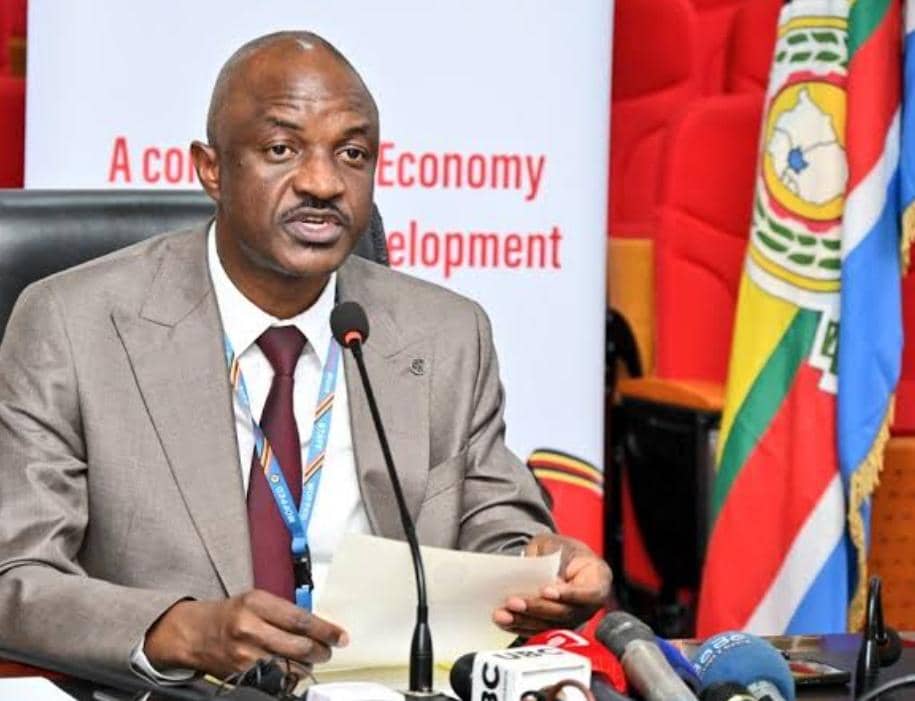Uganda’s economy recorded a robust growth of 6.7 percent in the first quarter of FY 2024/25, surpassing the 5.6 percent recorded in the same period of FY 2023/24, according to Permanent Secretary and Secretary to the Treasury (PSST) Ramathan Ggoobi.
Speaking at a press briefing held at the ministry of Finance base on Tuesday,, Ggoobi highlighted that the growth was driven by key sectors including agriculture, agro-processing, construction, and wholesale trade, supported by improved business conditions as reflected in a 53.1 Purchasing Managers Index (PMI).
According to a report by Ggoobi, despite a slight rise in headline inflation to 3.3 percent in December 2024, inflation remains well within the 5 per cent target set by the Bank of Uganda. The Ugandan shilling also demonstrated stability, appreciating by 0.4 percent against the US dollar in December, bolstered by increased remittances and Foreign Direct Investment (FDI), particularly in the oil sector.
Export earnings in Q1 totaled USD 2.262 billion, marking a 21.8 percent increase from USD 1.857 billion in Q1 FY 2023/24. Coffee exports were a standout contributor, supported by gains in mineral products, flowers, and tobacco. However, with imports growing at a faster rate, the trade deficit widened marginally by 1.2 per cent to USD 898.66 million.
The government has released Shs15.64 trillion for the third quarter (Q3) of FY 2024/25, representing 21.68 percent of the approved budget. These funds are allocated to critical sectors, including health, education, security, and infrastructure, aiming to sustain Uganda’s development momentum.
Significant allocations in Q3 include:
Health: Shs 110.65 billion for essential medicines and Shs 264.71 billion for health infrastructure development.
Education:Shs 112.28 billion for Education Capitation grants and Shs 124.45 billion for infrastructure and refugee skilling projects.
Security:Shs 469.16 billion for the Ministry of Defence and Shs 78.89 billion for police infrastructure.
Infrastructure: Shs 396.55 billion for transport projects, including the Standard Gauge Railway and Bukasa Port.
The government also prioritized development initiatives under the Agro-industrialization, Tourism, Mineral-based Industrial Development, and ICT sectors.
PSST Ggoobi emphasized fiscal discipline, urging Accounting Officers to ensure timely payment of salaries, pensions, and gratuities by the 28th of every month. He warned against unauthorized commitments that could lead to domestic arrears and directed strict compliance with budget approvals.
“The Q3 release aligns with our strategy to shift resources from consumptive items to growth drivers and enablers,” Ggoobi stated. He also reassured the public of no service delivery gaps during the ongoing Rationalization of Government Agencies and Public Expenditure (RAPEX) process.
As of now, the government projects that the economy will grow between 6 per cent and 6.5 per cent in the second half of the financial year, with inflation staying within target and the exchange rate maintaining stability. Domestic revenues are on track to achieve 100 percent performance, with Shs15.33 trillion already collected against a half-year target of Shs 15.01 trillion.





